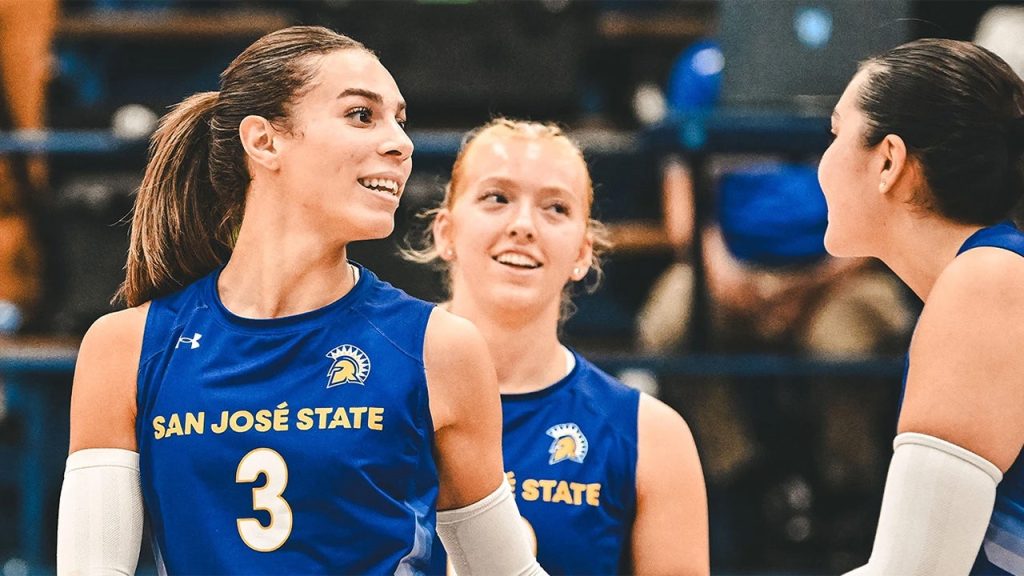The San Jose State women’s volleyball team is receiving additional security from university police amid controversy surrounding a transgender player on the team. The team has been subject to significant national media attention, prompting the need for increased security measures to ensure the safety of the players. The police department typically handles around 60,000 incidents annually, but resources are now being directed towards protecting the volleyball team at home and away games. The controversy stems from the presence of Blaire Fleming, a transgender female player who transferred to San Jose State from Coastal Carolina.
Fleming, a biological male, previously set records in high school girls’ volleyball before joining the San Jose State team. The National Collegiate Athletics Association (NCAA) requires transgender women to provide documentation including testosterone levels to determine their eligibility to play. Despite compliance with NCAA rules, the team is facing resistance from one of its own players who has filed a lawsuit over Fleming’s presence. Additionally, four other competing programs have forfeited matches against San Jose State following news of the lawsuit. The controversy has sparked impassioned arguments on both sides of the issue, with concerns raised about fairness, safety, and the protection of female athletes.
Idaho Governor Brad Little and Utah Governor Spencer Cox have commended universities in their respective states for forfeiting matches against San Jose State in support of preserving a fair and safe environment for female athletes. Little previously passed an executive order opposing transgender inclusion in girls’ and women’s sports, emphasizing the need to ensure player safety and fairness in women’s sports. However, LGBTQ rights groups have advocated for Fleming’s right to compete as a women’s volleyball player, arguing against discrimination and exclusion in athletics. The debate highlights the complexities and tensions surrounding transgender athletes’ participation in sports.
Despite controversy and forfeited matches from some opposing teams, Colorado State and the University of Nevada have committed to playing against San Jose State. The issue has ignited a national conversation about transgender participation in women’s sports, with different perspectives on how to navigate these challenges. While some advocate for maintaining fair competition and athlete safety, others emphasize inclusivity and the rights of transgender athletes to participate. As the debate continues, the San Jose State women’s volleyball team remains at the center of a complex and contentious national dialogue surrounding LGBTQ rights, women’s sports, and the role of governing bodies like the NCAA in addressing these issues.















